Summary of Budget 2020: Key points at-a-glance
- Published
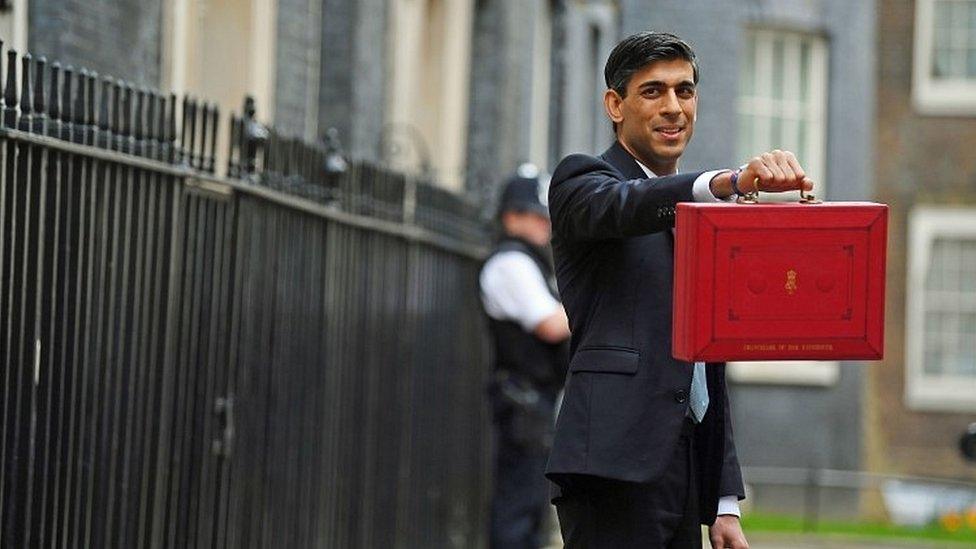
Chancellor Rishi Sunak has delivered his first Budget in the House of Commons, announcing the government's tax and spending plans for the year ahead.
Here is a summary of the main points.

Coronavirus and public services

£5bn emergency response fund to support the NHS and other public services in England
All those advised to self-isolate will be entitled to statutory sick pay, even if they have not presented with symptoms
Self-employed workers who are not eligible will be able to claim contributory Employment Support Allowance
The ESA benefit will be available from day one, not after a week as now
£500m hardship fund for councils in England to help the most vulnerable in their areas
Firms with fewer than 250 staff will be refunded for sick pay payments for two weeks
Small firms will be able to access "business interruption" loans of up to £1.2m
Business rates in England will be abolished for firms in the retail, leisure and hospitality sectors with a rateable value below £51,000
£6bn in extra NHS funding over five years to pay for staff recruitment and start of hospital upgrades

Personal taxation, wages and pensions
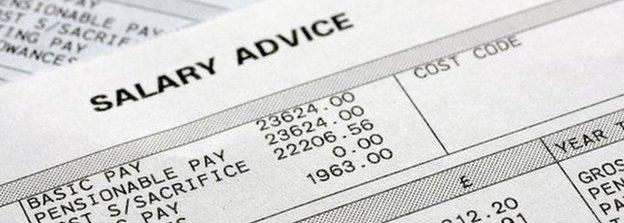
The tax threshold for National Insurance Contributions will rise from £8,632 to £9,500
The move, first announced in November, will take 500,000 employees out of the tax altogether
Those earning more than £9,500 will be, on average, £85 a year better off
5% VAT on women's sanitary products, known as the tampon tax, to be scrapped
No other new announcements on income tax, national insurance or VAT
Tax paid on the pensions of high earners, including NHS consultants, to be recalculated to address staffing issues

Alcohol, tobacco and fuel
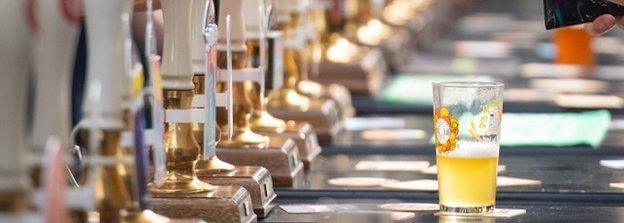
Fuel duty to be frozen for the 10th consecutive year
Duties on spirits, beer, cider and wine to be frozen
Tobacco taxes will continue to rise by 2% above the rate of retail price inflation
This will add 27 pence to a pack of 20 cigarettes and 14 pence to a packet of cigars
Business rate discounts for pubs to rise from £1,000 to £5,000 this year

Business, digital and science

System of High Street business rates to be reviewed later this year
Firms eligible for small business rates relief will get £3,000 cash grant
Entrepreneurs' Relief will be retained, but lifetime allowance will be reduced from £10m to £1m
£5bn to be spent on getting gigabit-capable broadband into the hardest-to-reach places
Science Institute in Weybridge, Surrey to get a £1.4bn funding boost
An extra £900m for research into nuclear fusion, space and electric vehicles
VAT on digital publications, including newspapers, e-books and academic journals to be scrapped from December

Environment and energy

Plastic packaging tax to come into force from April 2022
Manufacturers and importers whose products have less than 30% recyclable material will be charged £200 per tonne
Subsidies for fuel used in off-road vehicles - known as red diesel - will be scrapped "for most sectors" in two years' time
Red diesel subsidies will remain for farmers and rail operators
£120m in emergency relief for English communities affected by this winter's flooding and £200m for flood resilience
Total investment in flood defences in England to be doubled to £5.2bn over next five years
£640m "nature for climate fund" to protect natural habitats in England, including 30,000 hectares of new trees

Transport, infrastructure and housing
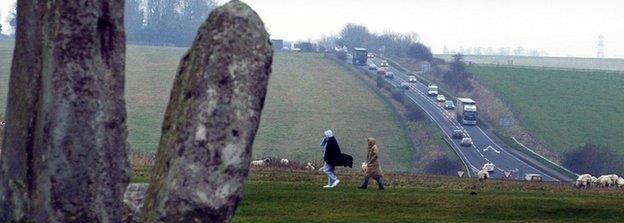
More than £600bn is set to be spent on roads, rail, broadband and housing by the middle of 2025
There will be £27bn for motorways and other arterial roads, including new tunnel for the A303 near Stonehenge
£2.5bn will be available to fix potholes and resurface roads in England over five years
Further education colleges will get £1.5bn to upgrade their buildings
£650m package to tackle homelessness, providing an extra 6,000 places for rough sleepers
Stamp duty surcharge for foreign buyers of properties in England and Northern Ireland to be levied at 2% from April 2021
New £1bn fund to remove all unsafe combustible cladding from all public and private housing higher than 18 metres

The state of the economy and public finances
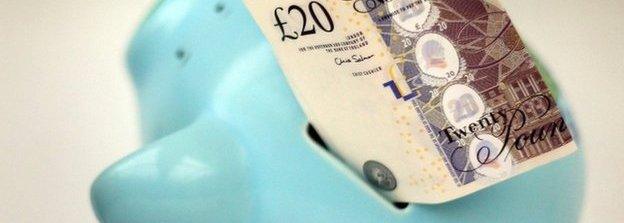
Economy predicted to grow by 1.1% this year, revised down from 1.4% a year ago
The figure, which does not take into account the impact of coronavirus, would be the slowest growth since 2009
Growth predicted to rebound to 1.8% in 2021-22, 1.5% in 2022-23 and 1.3% in 2023-24
Inflation forecast of 1.4% this year, increasing to 1.8% in 2021-2022
Government to borrow £14.6bn more this year than previously forecast, equivalent to 2.1% of GDP
Total additional borrowing of £96.6bn forecast by 2023-2024 to pay for spending commitments
Debt as a percentage of GDP forecast to be lower at end of current Parliament than now

Nations and regions

An extra £640m for Scotland, £360m for Wales, and £210m for Northern Ireland.
Treasury's Green Book rules to be reviewed to factor regional prosperity into spending decisions
Treasury to open new offices in Wales and Scotland and civil service hub in the North of England, employing 750 staff
New £1.8bn devolution deal for West Yorkshire, with elected mayor for region
Universities outside the south east of England to get lion's share of extra £400m R&D funding
£800m for two carbon capture and storage clusters, creating 6,000 new jobs in Teesside, Humberside, Merseyside and Scotland